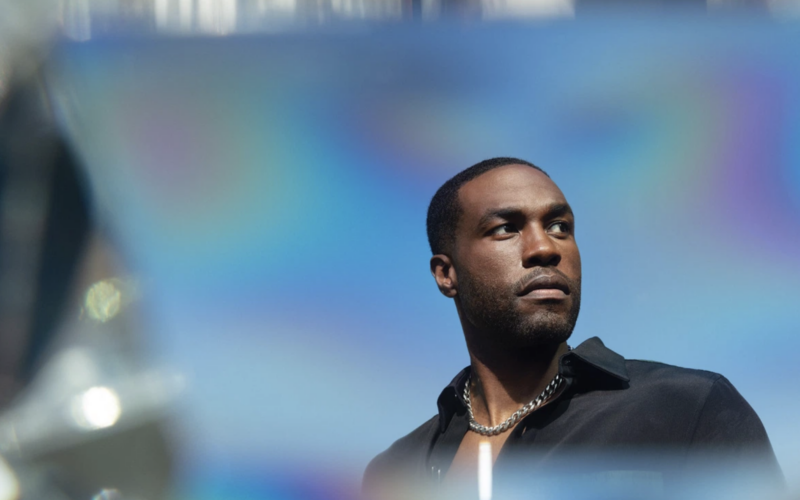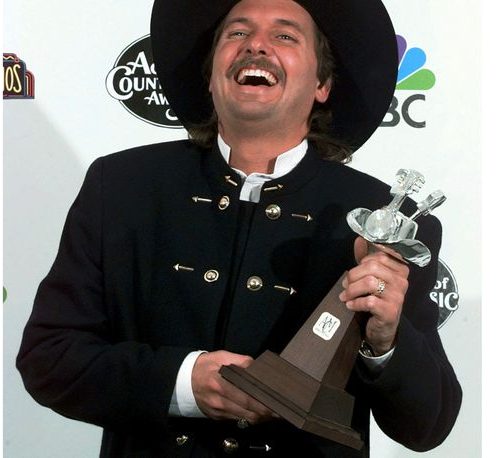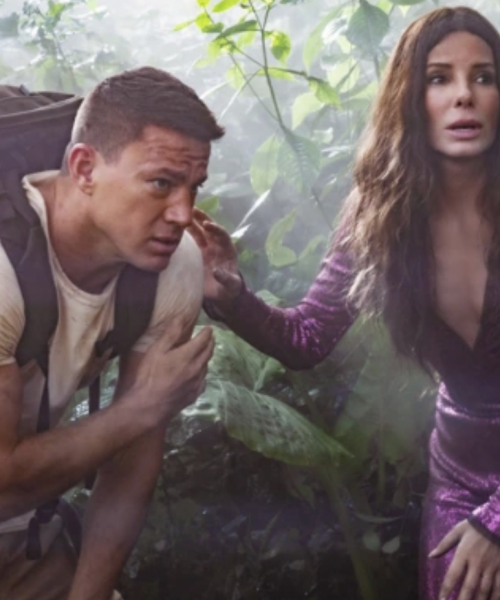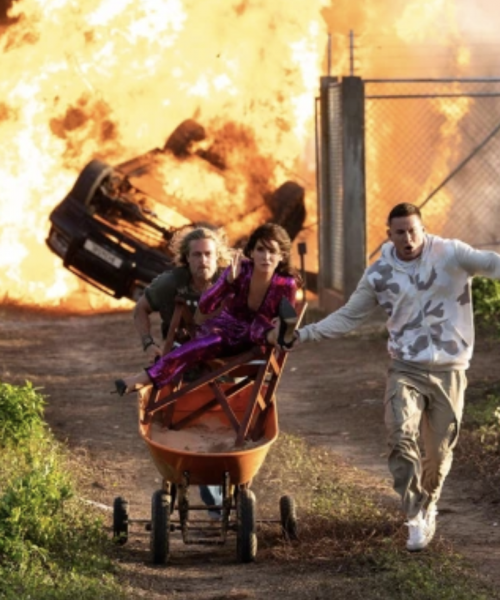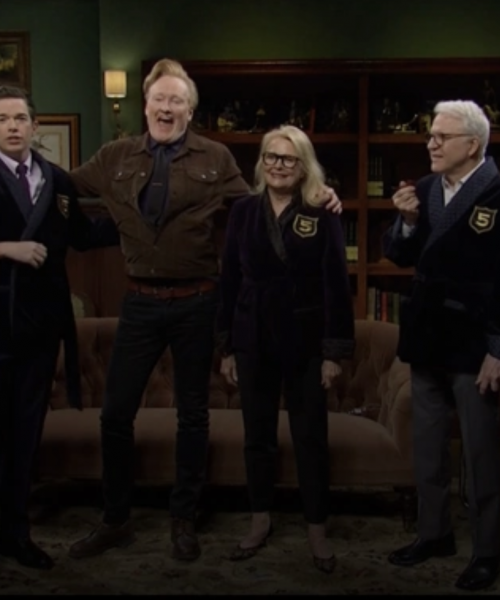BY TATIANA SIEGEL | HollywoodReporter.Com
Troy Warren for CNT #Entertainment #Celebrity
Fresh off his Emmy win for ‘Watchmen,’ the magnetic actor has a string of high-profile roles lined up, including ‘Candyman,’ ‘Aquaman II’ and ‘Matrix 4’: “I looked up and there was Keanu, and I said, ‘Oh s***, I’m really in the Matrix.’ “
Back in May 2018, Damon Lindelof was watching an episode of Hulu’s The Handmaid’s Tale with his wife when his antenna went up and he felt “that intangible thing.” He was witnessing that rare actor whose onscreen charisma is so palpable that you can’t avert your gaze even as he shares the screen with an already established star. Lindelof had felt that same sensation once before, in 2007, when he and J.J. Abrams were combing through Star Trek audition tapes and came across Chris Pine. Now, the actor he was transfixed by was Yahya Abdul-Mateen II, whose biggest credits to date were as the sixth lead in Baz Luhrmann’s short-lived hip-hop origins series The Get Down on Netflix and a cop in the Baywatch movie.
“First off, if you’re in scenes with Elisabeth Moss, you’d better be able to hold your own,” Lindelof recalls thinking. But Abdul-Mateen was more than able to hold his own. He managed to outshine his Emmy-winning co-star in the “Baggage” episode of season two, in which he helps Moss’ character attempt an escape from the dystopian Gilead. “It’s just that feeling in my body of, ‘Who’s that?’ where you completely and totally sit up. And very often, they’re not in the context of a starring role.”
Continues Lindelof: “I immediately googled Yahya and I’m sure grossly mispronounced his name. But I sent an email to Vickie Thomas, who was the casting director on Watchmen, and was basically like, ‘We need to get him in on this.’ “
Thomas did just that, and Abdul-Mateen didn’t disappoint, winning a supporting actor Emmy for his performance as Cal Abar, Regina King’s stay-at-home husband who harbors a big secret, in the acclaimed HBO drama.
Now Abdul-Mateen is fronting two of this year’s most anticipated films. First up is MGM/Universal’s Jordan Peele-produced Candyman reboot on Aug. 27, in which he plays Jekyll-and-Hyde roles in the slasher classic as both a successful visual artist who returns to Chicago’s now-gentrified Cabrini Green projects as well as an incarnation of the titular villain. Come year’s end, the stakes only get higher. On Dec. 22, Warner Bros. will bring Lana Wachowski’s Matrix 4 to theaters and HBO Max, with Abdul-Mateen starring alongside original cast Keanu Reeves, Carrie-Anne Moss and Jada Pinkett Smith.
In just three years since he made Lindelof sit up on his couch, Abdul-Mateen has secured his spot onHollywood’s new A-list.
In the era before the all-important tentpole became the main staple of the major studios’ theatrical slates, the A-list label meant an actor who could open a movie through name recognition, without the assist of branded IP. Today, those who fit that criteria have all but disappeared, with Leonardo DiCaprio leading a dwindling pack (even Tom Cruise relies on the Mission Impossible brand). Instead, the new A-list is a rising group of actors who have stood out so profoundly in their supporting roles (think Black Widow‘s Florence Pugh) and showcased such range that studios are competing with their rivals to plug them into their next nine-figure gambles. Or, as Lindelof sums it up, “It’s someone you’re willing to watch for two hours in anything they do.”
Abdul-Mateen certainly fits that bill.
Without the pressures of opening a film, the new A-listers have more freedom, picking and choosing their projects and sliding through genres. In fact, as Abdul-Mateen embarks on his pivotal next moves, which include headlining George Miller’s Mad Max prequel, Furiosa, the 35-year-old Yale School of Drama grad says he is guided not by the type of film but by the type of person making it.
“A word that I’m using right now a lot in my meetings is ‘tribe,’ ” the New York-based actor explains. “I’m looking for the people whom I want to tell these stories with. I’ve been on the road since January of 2017. It can be lonely. I want to work with people who feel like family. Scorsese does it. The Afflecks do it. Spike Lee does it. I’m looking for the same type of community right now — people who value the same things that I value in storytelling, people who wouldn’t mind traveling around the world with me and make really, really good shit.”

On this July afternoon, the 6-foot-3 actor fiddles with his AirPods and takes a gulp of some healthy-looking green concoction in the kitchen of his London rental before settling in for this Zoom interview. He’s on a rare one-week break during a five-month shoot of Aquaman and the Lost Kingdom. And time off can be angst-provoking for an over-analyzer like he is.
“I probably think too much,” he admits. “I think about work too much when I’m not working. I’m planning the next job or looking for the next creative thing to do. That’s just how my brain works.”
Still, it’s hard to square even a hint of neuroses with his easy-breezy vibe and a smile that never lets up. For Candyman co-star Teyonah Parris, Abdul-Mateen is very much a portrait in duality.
“He’s a serious artist and is very focused. But he’s also a goof,” she says, adding with a laugh, “He’s not going to like that word.”
During his brief respite, he’s been whiling away the days watching reruns of The Office.
“Michael Scott just has a big heart,” he says, eager to dissect the Dunder-Mifflin dynamic. “As soon as he gets on your last nerve, he just redeems himself. I don’t know how, but he’s also excellent at his job. They have the highest-performing branch. He always comes through in the clutch. Dwight is just classic. I like Creed, too. You can’t sleep on Creed. Creed does not have one wasted moment.”
The same certainly could be said of Abdul-Mateen as a performer, stealing scenes as Black Panther Bobby Seale in Aaron Sorkin’s The Trial of the Chicago 7 or as a man exploring virtual romance with Anthony Mackie in the season five “Striking Vipers” episode of Black Mirror.
Sorkin says it should come as no surprise that Abdul-Mateen has catapulted to the top of directors’ wish lists.

“There are some things an actor can’t act,” he says. “An actor can’t act smart or strong or funny. They have to already be those things. Yahya absolutely owns the piece of ground he’s standing on. That, combined with world-class acting skills, is usually what makes a movie star.”
From his earliest days in New Orleans, Abdul-Mateen basked in the spotlight. As the youngest child of six with a construction worker father and a homemaker mother, he was the fawned-upon baby of the family.
“Being the youngest kid, I got a lot of attention. It was a boy at one end, four girls, and then me bringing up the rear,” he notes. “We were just silly. We allowed ourselves to be that so much that when I got out into the world, I was comfortable. The world felt like my stage. My parents always instilled confidence in me. I believed I could do anything. So I was willing to take the stage, and I secretly loved, loved, loved attention.”
Growing up in the city’s hardscrabble Magnolia Projects, home to sculptor Willie Birch and a common destination for brass band parades, Abdul-Mateen’s home was filled with music. His mother kept a watchful eye on him, his siblings and their friends.
“Sometimes people thought we ran a group home because there was nothing but kids coming to our house,” he says.
At the age of 9, he moved with his family to Oakland, California. “When we moved, we took New Orleans with us,” he says. “They called us the Black Brady Bunch. It was six of us kids, a station wagon, a dog and a cat.”
In West Oakland, he excelled at sports and was recruited by nearby UC Berkeley, where he ran track on scholarship and studied architecture. As an upperclassman, he decided to take an acting class to help with a stutter that was beginning to derail his architecture presentations.
Though the impediment persisted, “I didn’t stutter when I was acting. Acting was fun,” he remembers. “I never knew that acting was anything real. I didn’t know that I could do it.” He never considered acting professionally. None of his siblings had pursued careers in the arts.
Instead, he continued to chase the architect dream. After graduating, he took a job as a city planner in San Francisco. One day, he saw a close friend, then-NFL player and sometime-actor Marshawn Lynch, on TV. The two knew each other from Oakland high school sporting circles, competing against each other, and were fellow athletes at Berkeley.
“That was the first time that I saw somebody whom I related to onscreen. It just broke everything wide open,” he says. “I said, ‘Oh shit, if he could do that, then I could do that.’ That was somebody that I knew who looked like me, talked like me. I said, ‘OK, I think I really want to give this a shot and see what’s there.’ ”
So Abdul-Mateen applied to graduate drama programs and was accepted at Yale and NYU. He opted for the former after discussing it with some of his mentors from Berkeley.
“I think that’s one of the biggest parts of my narrative that often gets left out,” he explains. “People had opportunities to tell me that I couldn’t do it. But at every point, when I asked people that I looked up to, ‘Hey, do Black people do Shakespeare? Do you think I’m good enough to apply to drama school?’ they said, ‘Absolutely, yes.’ That was wind under my wings. Because I was an outsider. I studied architecture. I was dabbling in acting just as a hobby a little bit.”
In the early days, he took inspiration from such varied performances as Denzel Washington in Malcolm X, Dick Van Dyke in Chitty Chitty Bang Bang and Mary Poppins, and Dustin Hoffman in Hook. “They all got that swagger, and I remember imitating that.” After completing his MFA, he landed his first role in Luhrmann’s big-budget spectacle The Get Down as Bronx club owner Clarence “Cadillac” Caldwell at the age of 29.
“I miss that job,” he says. “The further along I get, I realize how rare an occasion that was, to be able to be making a New York story in New York, workshopping it with the people who the story was about, with Baz and the music and the dance.”


But Netflix quickly cut the cord on its pricey gamble, and suddenly, Abdul-Mateen found himself hustling for work. He toggled between indies and studio fare, appearing in Shawn Christensen’s 2017 Sundance drama The Vanishing of Sidney Hall and Fox’s P.T. Barnum musical The Greatest Showman that same year. The latter became a surprise box office hit, earning $437 million worldwide. But the fledgling actor needed a breakthrough, and that came via James Wan’s Aquaman, which exceeded Warner Bros.’ most optimistic forecasts with $1.15 billion worldwide. Abdul-Mateen, who played villain Black Manta, was cited by critics as a highlight of the film. While some up-and-comers are reluctant to tackle the antagonist role out of fear of being branded as unsympathetic, Abdul-Mateen was eager: “The bad guy is always more interesting to explore.”
Says Lindelof, “I think that he is very intentional with the parts that he chooses and is driven by and interested in parts that connote some degree of risk. Like in Candyman. Is he the hero? Is he the villain? There’s always kind of a question mark in terms of the way he approaches projects. Also, he doesn’t wear it all on his sleeve. There’s something kind of guarded about a lot of the characters that he plays. You don’t always know what they’re thinking, but you almost always know what they’re feeling. And that is kind of unique to his process.”
Directors began to take notice. Peele cast the rising star in Us, which led to the offer for the lead in the Peele-scripted and -produced Candyman, which explores the motif of inner-city dwellers who use the legend of the eponymous spirit to cope with adversity. (Candyman appears when his name is invoked five times.) “I wanted be a leader on set and to tell a story about Chicago and to tell a story about an artist,” says Abdul-Mateen of the 2019 shoot. “I knew that I was attached to something that had this really rich history of Black folklore. It’s a story that was so important historically to myself and people from the places that I’m from. I grew up in the projects, and Candyman was also in the projects. So it was really exciting to tell a story about history that I related to.”
Just as the coronavirus began cutting a deadly path throughout the U.S. in March 2020, Abdul-Mateen finished shooting Matrix 4 scenes in San Francisco and then traveled to Chicago for two days of reshoots on Candyman. The day before he was scheduled to fly to Berlin for the bulk of Matrix 4, he got a call that Warners was shutting down the production. He made it back to his home in New York before the entire country ground to a halt and wound up waiting in the city until June 2020, when Matrix 4 resumed.
He brought a cousin with him for the six-month process that included on-set martial arts training before principal photography.
“That was my road dog,” he says of his relative. “He basically saved my life because I needed that company and friendship, that connection to family.”

On set, he found himself initially a bit starstruck. “I remember Keanu and his first line. I looked up, and there was Keanu, and I said, ‘Oh shit, I’m really in The Matrix,’ ” he says. “It was just Keanu in that voice. And the technology that Lana incorporated and the filmmaking, camera rigs that I’ve never seen before. It’s so ambitious. It was really interesting to be making The Matrix 4 at a time when the world was so warped and when reality was so distorted. It could creep in a little bit if you let it.”
After The Matrix 4 wrapped, Abdul-Mateen signed on for the Michael Bay-directed thriller Ambulance, starring opposite Jake Gyllenhaal (Abdul-Mateen was able to fit the film into his schedule after production on Aquaman 2 was pushed several months). The Universal film, which will bow theatrically Feb. 18, revolves around two robbers who steal an ambulance after their heist goes awry.
Still, Warners has become his go-to home. After making a string of films for the studio, he’s found his rhythm and has several projects in the works, including Miller’s Furiosa and the Aquaman sequel, in which his cutthroat supervillain Black Manta will loom much larger than in the first outing and delve into his alter ego, David Kane.
“I think the script is better than it was in the first one. It gives the actors a lot of good storytelling moments,” he explains. “In Aquaman, we just got a small introduction to Black Manta and to some of his motivations. In this one, I get to exercise and breathe a little bit more. I’m showing some different colors with this one.”
He’s forged a strong bond with Warners executive vp Niija Kuykendall and is collaborating with her on at least two upcoming films. He stars in Emergency Contact, an action film set in the underground music scene of Austin that is being developed by Dwayne Johnson’s Seven Bucks and also will mark Abdul-Mateen’s first foray into producing. The second is a dystopian thriller that Warners acquired just for him: By All kicks off in the aftermath of a tragic event and centers on a man who is forced to go on the run in a world without police, where justice is crowdsourced. The studio is hoping that it will be a franchise starter.
“He’s this highly trained actor who is incredibly talented and ambitious, wanting to produce and wanting to really own the stories that he’s in,” says Kuykendall. “We really believe in Yahya as a movie star. He has the whole package — craft, charisma, presence, ambition and the sense of self-empowerment. Years ago, I had him in for a general meeting, and even then he was very clear about his mission and the choices he’s made.”
Abdul-Mateen says he knew he had arrived a few years ago, when he told his mother that he was able to start paying her rent.
“I don’t want to make it sound like I’m balling out of control,” he says with a laugh. “I made a phone call to let her know that that was a tab that I was willing to pick up, that I was more than willing and able to pick up, so that wasn’t something that she had to think about.”
The actor has got a short wish list of directors he’d like to work with, including Ryan Coogler, Quentin Tarantino, Martin Scorsese, Melina Matsoukas, Spike Lee and James Mangold.
But for now, he is trying to take some of the pressure off his own shoulders and suss things out — another perk of being a member of the sought-after new A-list. Come November, when he wraps Aquaman 2, he will take a six-month break before segueing to Furiosa in 2022. And with no work or travel demands, he plans to get a dog, a hammock, visit some museums and tune in to his own frequency. In his spare time, he’s learning to play the piano and guitar.
“I’ve spent a lot of time taking some steps that I thought I should take along the path of my career,” he says. “Next, I want to relax, slow down, turn my phone off and just get quiet. I think the world is going to get noisy soon enough. I just want to listen to the little guy inside and let him drive for a little while. I think that’ll get me into some pretty good situations.”

In Other NEWS


























